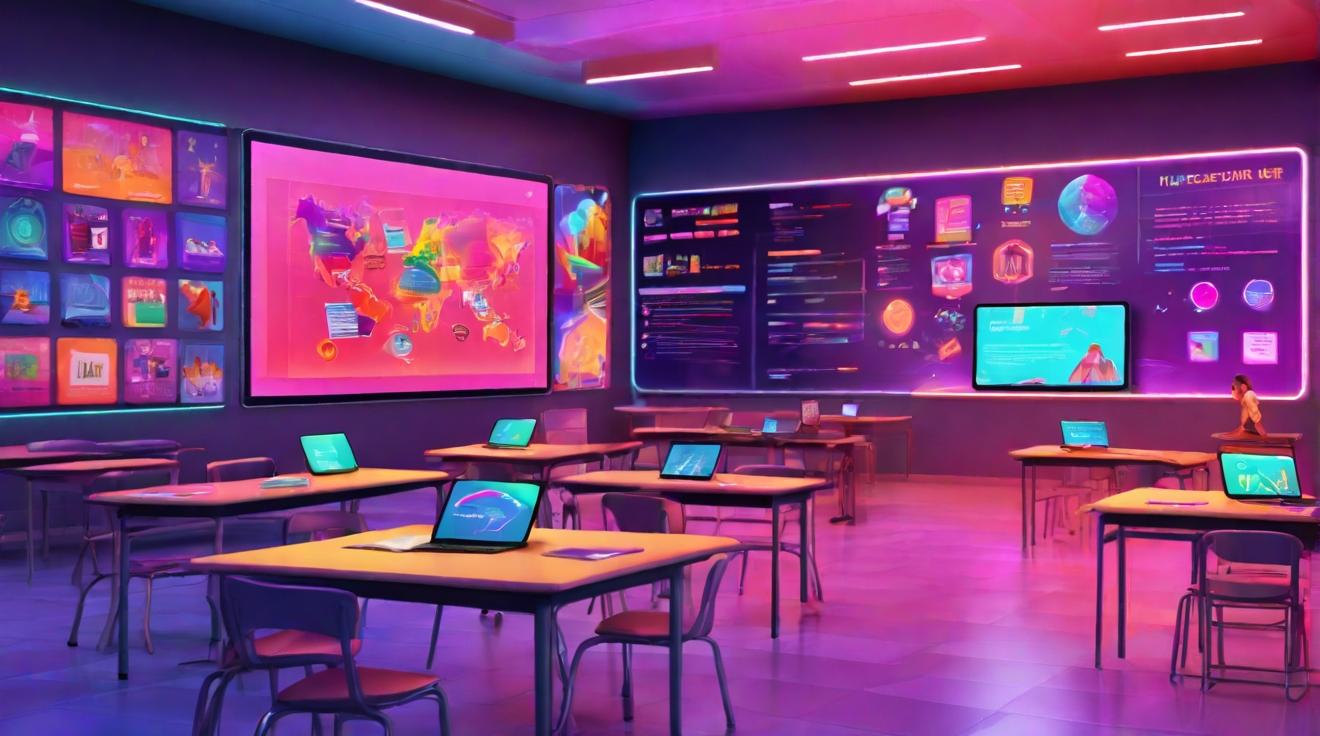Virtual Reality E-Learning Market Set to Skyrocket to US$ 109.68 Million, with a CAGR of 56.25%
The global Virtual Reality (VR) E-Learning market is projected to experience a remarkable surge in growth, reaching a value of US$ 109.68 million. This exponential growth is expected to be driven by increasing demand for personalized and immersive learning experiences, rapid advancements in VR technology, and a rising adoption of VR in educational institutions worldwide. With a staggering compound annual growth rate (CAGR) of 56.25%, the future of the VR E-Learning market looks promising.
The COVID-19 pandemic has further accelerated the growth of this market, as educational institutions were forced to transition to remote learning. This sudden shift has led to increased investments and collaborations between technology companies and educational institutions, further fueling the market’s growth.
Virtual Reality: Redefining Education with Immersive and Personalized Learning
Virtual Reality technology has brought forth a new era of learning, transforming traditional classroom settings into interactive virtual environments. This shift provides students with immersive, engaging, and personalized learning experiences. The impact of VR on education goes beyond reshaping the educational landscape; it is also a driving force behind the market’s growth.
Factors Influencing the Market: Technological Advancements, Mobile Learning, and Gamification
Several factors are influencing the growth of the VR E-Learning market. Technological advancements, such as artificial intelligence (AI), machine learning (ML), and the use of virtual reality (VR) and augmented reality (AR), are enabling flexible, self-paced learning options. These advancements cater to the increasing demand for skilled workforces across various industries. Additionally, the adoption of mobile learning and the incorporation of gamification elements in educational content have also contributed to the market’s expansion.
From a regional perspective, North America, Europe, and Asia Pacific are expected to lead the market. These regions have witnessed a rapid adoption of advanced technologies, a strong presence of key market players, and favorable government initiatives promoting digital learning.
Intense Competition and Key Players in the VR E-Learning Market
The VR E-Learning market is highly competitive, with key players like Avantis Systems, eLearning Studios, Enlighten, Google, Immerse, LearnBrite, Lenovo, MOOC Solutions, Oculus VR, and RapidValue Solutions vying for market dominance. These companies are employing various growth strategies, including partnerships, collaborations, new product launches, and acquisitions, to expand their market presence and stay ahead of the competition.
The market is segmented by components, including devices, head mounts, projectors, software, and services. The head mount segment is expected to witness the highest growth rate. The applications of VR E-Learning span across academic and corporate training sectors.
Maximize Market Research Report: An Invaluable Resource for Investors and Stakeholders
Maximize Market Research’s comprehensive report provides valuable insights into the VR E-Learning market, making it an essential resource for investors, stakeholders, and market observers. The report offers information on market size, segmentation, growth strategies, industry trends, challenges, and opportunities. It also provides a comprehensive competitive landscape and strategic analysis of key players by region.
The Transformative Power of Virtual Reality E-Learning: A New Era of Immersive and Personalized Experiences
The growth of the VR E-Learning market reflects not only a shift in educational practices but also a broader cultural shift towards immersive, interactive, and personalized experiences. As we move towards a future where technology and humanity continue to intertwine, the VR E-Learning market stands as a testament to the transformative power of innovation. The potential of this market is boundless, and with the future of learning becoming increasingly virtual, the journey of the VR E-Learning market is just beginning.
Analyst comment
Positive news: The Virtual Reality E-Learning market is projected to skyrocket to US$ 109.68 Million with a CAGR of 56.25%. Increasing demand for personalized and immersive learning experiences, advancements in VR technology, and rising adoption in educational institutions are driving this growth. The COVID-19 pandemic has further accelerated the market’s expansion. Technological advancements, mobile learning, and gamification are also influencing the market. North America, Europe, and Asia Pacific are expected to lead. Companies are employing various strategies to stay competitive. The market is segmented by components, with head mounts expected to witness the highest growth rate. The market report by Maximize Market Research provides valuable insights for investors. The growth of the VR E-Learning market reflects a broader shift towards immersive and personalized experiences. The potential of this market is boundless.













